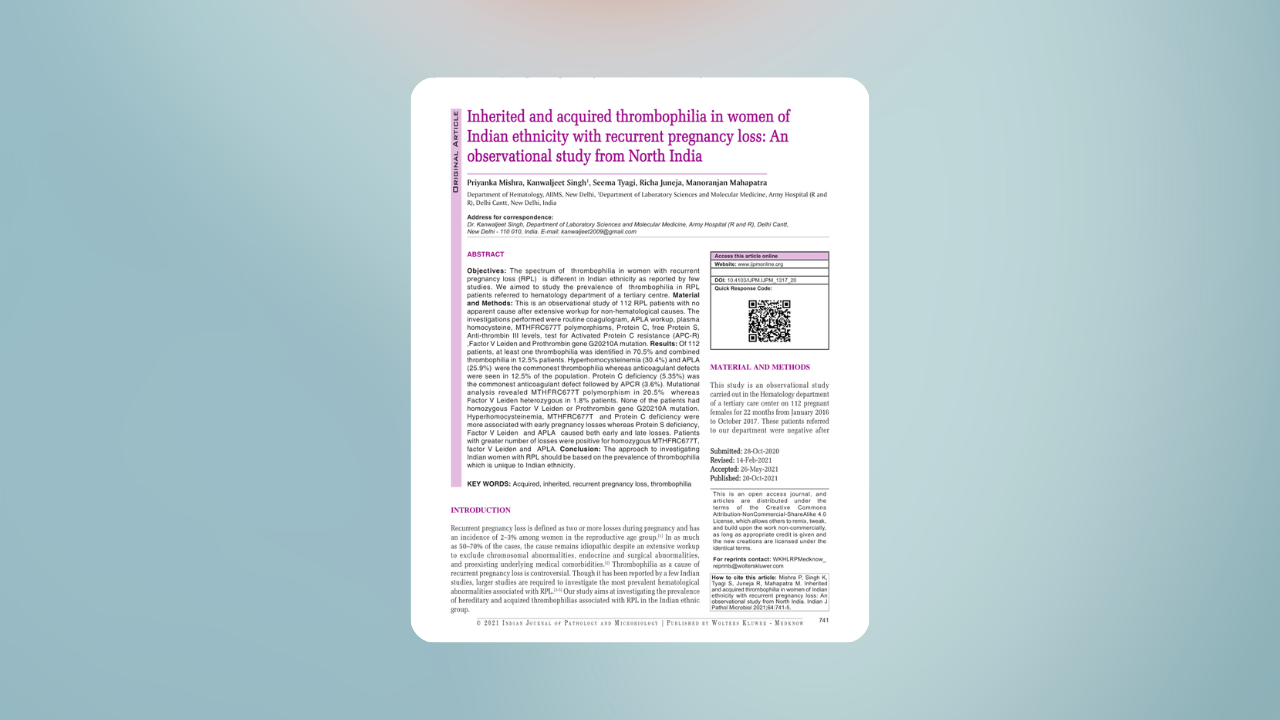
Chief Guest 9M CME
Original article Genetic markers for inherited thrombophilia in Indian Population in the Journal of Maternal and Fetal Medicine, 2022.
In the background role of several thrombophilia related genes and variants associated with recurrent pregnancy loss and implantation failure, the study aimed to identify the risk associated with these genes in the Indian population. The study concluded that deriving risk magnitude from Combined Risk Analysis and interpretation of high-risk haplotypes are crucial components for evidence based personalized management such as selection of drugs and dosage, and prenatal or pre-implantation testing recommendations, for high-risk patients in fertility and obstetric clinics..

A study published in the American Journal of Human Genetics investigated the prevalence and impact of nonsense single nucleotide polymorphisms (SNPs) in the human genome. These variants introduce premature stop codons, potentially leading to truncated, nonfunctional proteins. By genotyping 805 nonsense SNPs across 1,151 individuals from 56 populations, researchers identified 169 genes with variable nonsense SNPs, with 99 genes showing inactivation in at least one individual. On average, individuals differed by 24 genes due to these SNPs alone. While most nonsense SNPs are slightly disadvantageous over evolutionary timescales, some may be advantageous, indicated by high population differentiation and frequency.




